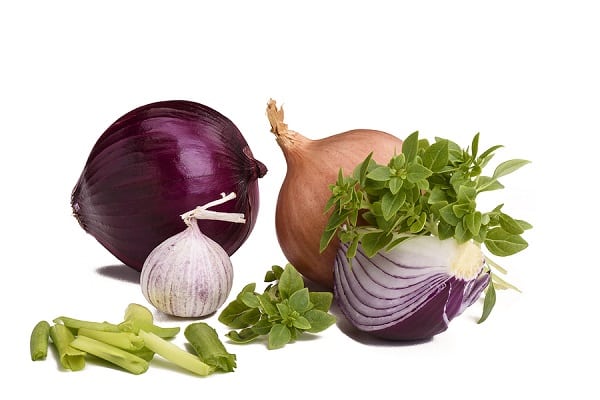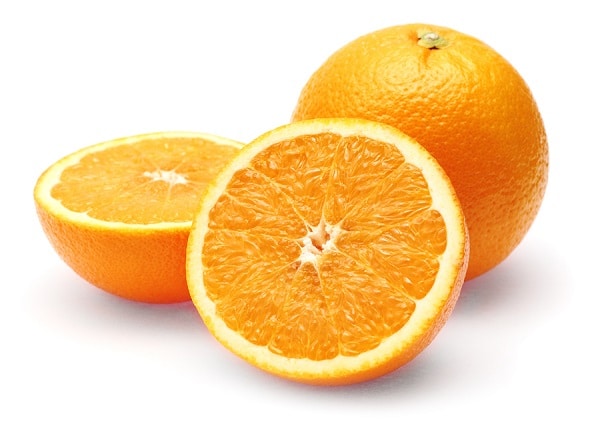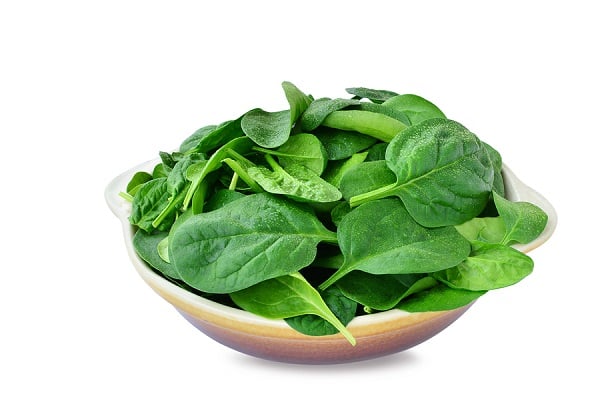April showers might bring May flowers, but they also bring about vicious spells of watering eyes and nasal irritation caused by seasonal allergies. An estimated 50 million people suffer from allergies in the United States alone, making them the sixth leading chronic illness in the country. Some of the most common seasonal allergy triggers include:
- Trees (such as Oak, Elm and Maple)
- Grass (such as Bermuda, Johnson and Orchard)
- Plants (such as Ragweed, Daisies and Chrysanthemums)
While the best defense against allergy season is to avoid your irritant, it is not possible to fully escape the pollen produced by blooming trees, flowers and weeds without staying indoors for weeks. Over the counter allergy medications provide some relief, but it is often short lived. If you’re looking for a practical solution with a long term effect on your overall health, consider adding these best foods for seasonal allergies into your culinary rotation.
 Onions
Onions
Onions are filled with high quantities of quercetin, a natural plant chemical that greatly helps to reduce histamine reactions. Histamines are a chemical compound produced in mast cells in the immune system that act as your body’s greatest defense against potentially harmful invaders. However, they can also cause some pesky seasonal allergy side effects. When a potential threat enters the body (such as dust or pollen), histamines trigger increased blood flow and inflammation to the affected area. This could mean a runny nose to flush out the irritant, or hives where dilated blood vessels leaked fluid to prevent the invader from traveling.
Quercetin acts as a natural antihistamine, stabilizing mast cells and soothing any allergy symptoms following a histamine reaction. Though onion is often a polarizing flavor, those who regularly find themselves reaching for antihistamine medication will be pleased to learn red onion contains 33.4 milligrams of quercetin for every 3.5 ounces. If onions are firmly on your list of untouchable foods, quercetin can also be found in smaller quantities in peppers, berries and parsley.
 Pineapple
Pineapple
Asthma sufferers rejoice – this sweet treat might be the secret to breathing easier through your seasonal allergies. Pineapple is rich with bromelain, a multi-faceted protein digesting enzyme. Bromelain is used worldwide to treat everything from muscle pain to indigestion. It’s anti-inflammatory properties are especially beneficial for allergy sufferers with asthma, as it can combat inflamed airways to allow for easier breathing. While there is no definitive cure for asthma, a bowl of sliced pineapple or a tropical pineapple smoothie could help to limit the need for your inhaler throughout allergy season.
 Oranges
Oranges
Natural antioxidants, antihistamines and antitoxins – oranges are the ultimate multitasker when it comes to defending against seasonal allergies. Fresh oranges are packed with vitamin C, which functions similarly to quercetin. The presence of vitamin C in the body helps to stabilize mast cells in the immune system, therefore decreasing histamine levels in the bloodstream. Vitamin C also helps cleanse the body of lurking toxins, which improves overall immune system function. Sometimes the acidity in oranges is too strong for your stomach. Consider getting your vitamin C fix from peppers and strawberries instead.
 Spinach
Spinach
Is your breathing feels tighter or shallower throughout seasonal allergy season? Consider adding a healthy helping of spinach to your diet. Spinach is loaded with magnesium. Therefore, a crucial mineral that plays an essential role in supporting and regulating several systems in the body. For instance, the respiratory system. Magnesium works to alleviate constricted airways in the lungs. Moreover, by dilating bronchial tubes and reducing inflammation. One cup of raw spinach accounts for 20 percent of the daily suggested 400 milligrams of magnesium. You can receive an additional boost from magnesium rich foods such as nuts, seeds and other leafy greens.
Foods to Avoid if You Have Seasonal Allergies
While there is no such thing as a seasonal food allergy, there are certain foods that aggravate seasonal allergy symptoms. If a runny nose and phlegm in your throat are common for you during allergy season, your best bet is to avoid yogurt and other dairy products. Dairy can cause mucus to thicken or feel thicker, which makes it harder to drain. Certain fruits and vegetables such as tomatoes and zucchini should also be avoided because they are naturally rich in histamines. Because of this, the immune system can confuse their plant proteins with pollen. Therefore, cause a cross-reaction similar to an allergic reaction. Cooking these fruits and vegetables can help to deplete their potentially irritating plant proteins. However, when in doubt, avoid fresh off the vine produce until allergy season is over.
Seasonal allergies can make for a brutal few months for sufferers. Although, there are plenty of ways to alleviate your symptoms without relying on medication. Consult with a functional medicine doctor to create a dietary and wellness plan to help you combat your seasonal allergies naturally from within.
Dr. Lorraine Maita is a recognized and award-winning holistic, functional, and anti-aging physician and author. She transforms people’s lives by getting to the root cause of illness using the best of science and nature. Her approach is personalized precision medicine where you are treated as the unique individual you are. If you’re ready to start your journey to a healthier, happier life, schedule your visit today!





She is a recognized and award-winning holistic, functional, integrative and anti-aging healthcare practitioner, speaker and author, and has been featured in ABC News, Forbes, WOR Radio and many media outlets to spread the word that you can live younger and healthier at any age.